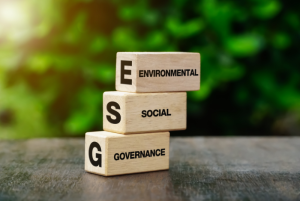@ the IERP® Global Conference, August 2024
The old adage “If you fail to prepare, you’re preparing to fail” still rings true today, said Promod Dass, Deputy Group CEO of RAM Holdings Bhd, in his session at the recent IERP Global Conference 2024. Dass, who is also CEO of RAM Solutions Bhd, said that extreme weather changes and events, and natural disasters were now on the list of Top Ten Global Risks. “The environment is something that everyone is worried about,” he said at the start of his presentation. “Some people say it’s an iceberg but it’s more like the Titanic – and it’s heading our way!”
Climate change has become a big issue for banks in Malaysia and abroad. Smaller issues are inevitably linked to larger ones like social polarisation; all risks are connected. The difference is that environmental risk is moving up and causing change more than other factors. “Institutional investors and rating agencies are influencing the flow of money,” he said. It goes to retail investments and loans, the private sector and the real economy. That’s where we can affect the UN SDGs because we can control where the money is going.”
The decisions we make in our managerial capacities or as individuals can make a difference, he added. In Malaysia, the change has come from the financial sector. “The banks were educated on how climate change was affecting us. They worked with their clientele, basically signalling that it was important to be careful with the environment,” he said. “That caused a big change in terms of the way consumers, retail and corporations started acting.” Climate change action is now coming from the banking industry, in the form of sustainable or social – ‘green’ – bonds.
Sustainability bonds are the way to go if corporate entities want to show that they are aware of the environment; that it wants to be different, or make a difference. He remarked that at the CEO or management level, a lot of companies were now looking at climate change or climate goals not as a risk but as an opportunity. “The important thing to realise is that you can create business opportunities with climate change,” he said.
Citing car manufacturer BYD as an example of how to do things differently, he said that electric cars, which have taken off in a big way, took a shorter time to develop than conventional vehicles. “EVs are basically dynamos,” he said. “They did not have to reinvent the wheel with full manufacturing, technology etc. They just fixed a motor to a dynamo.” What they had was a different mindset, and approach to business. One way that companies can take a different approach is to sign up with a global compact and take a pledge, like Net Zero, for better management of the environment.
This will indicate that they are committed to the green movement change as a corporate body. An example of this is Apple, which declared it was going to be carbon neutral across its supply chain. Apple got its suppliers to commit to using green energy such as solar power, and instituted tree-planting exercises to remove one million metric tons of carbon. “This is one example of a major corporation cleaning up the supply chain: by saying whoever wants to be in the supply chain has to follow these requirements,” Promod said.
“If you are a large corporation in Malaysia, and you have signed the pledge to be Net Zero by 2030, you can also impose these requirements on your supply chain.” There were several reasons for doing this. Firstly, to show that the company really cares about the environment; secondly, to differentiate the product of the company in the market; and thirdly, businesses run the risk of going out of business if they don’t do it. Investors want to see this, as the investment process now includes looking at how climate change strategies are being integrated into the business.
Investors are beginning to engage more with companies to be part of the change, encouraging companies to align with the Task Force on Climate-Related Financial Disclosures (TCFD) recommendations. Corporates in Malaysia have already started looking at this; it is a major change that will make a big difference. “If there are companies that don’t do this, you will stand out like a sore thumb,” he cautioned. Even non-listed companies and SMEs are likely to start complying as they are also a part of the supply chain.
Discussing Carbon Tax, another mechanism used to curb climate change, he said applying this was easier said than done because it depended to a great extent on whether a business was in a carbon-intensive industry. “It does not make it easy for the company to thrive, but it is one way of putting a curb on carbon emissions in some sectors, and at least to slowly make the change,” he said. Industries that release a lot of carbon can contribute to the change through tax dollars that help fund green industries or green-related entities.
“If you are going to have a business plan, if you want to make it matter, it must take into account climate change,” he said. This involves not just a mindset change but a clean-up of the supply chain as well. He stressed that major stakeholders and investors wanted to see it, and if companies did not do what was necessary, they ran the risk of being sued. The more emissions a business has, the heavier its carbon tax will be; its credibility will also be affected.
“If you are the management of a company, you can start thinking about this,” he said. “It can help reduce costs. Measure cost savings. You won’t see it in one year but…you will have figured out ways your business has moved. Most of the businesses that survived COVID-19 were able to do this. If you want to go green, you can start small.”


























